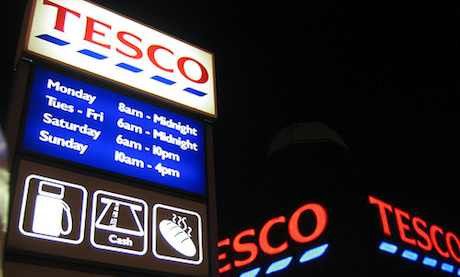Future Social CRM: What if...Tesco Clubcard and Facebook Connect?
As a near-constant social media user it’s interesting watching the gradual shift to an increasingly connected lifestyle. We’ve clearly passed a tipping point in terms of how willing people are to openly share their personal lives online, be it their holiday snaps, favourite restaurants or even the minutia of their daily lives.
For the purposes of Social CRM though, we’re only just crossing over the edge of the New Frontier as people begin to wonder just how comfortable they really are letting companies get involved with their online lives.
Thus far the majority of web users have happily come to accept how services such as Amazon and iTunes are able to track their usage in order to not only tell them about other products they might enjoy but also what other users with similar tastes are purchasing.
Although it’s obvious that these services must be tracking and collating their users’ activity in order to work properly, those same users don’t feel threatened because the resulting benefits are seen to be valuable (even when Amazon occasionally suggests a completely random item based on a gift you bought for a friend’s child three months ago).
In the bricks and mortar world, most people also don’t tend to be scared of loyalty cards such as Tesco’s Clubcard, even though there lies an army of data analysts behind the scenes poring over every possible metric to define which audiences buys what products, where and when. In contrast shoppers not only feel rewarded when their points arrive but they also benefit from ancilliallary features such as their personalised list of frequently-bought items.
Both the Amazon suggestion and Clubcard reward models are essentially reactive however, and neither system is able to preemptively communicate with consumers in order to fulfil their potential needs.
At Neoco we’re trying to define better and more integrated social CRM models for these forms of communication, which are fundamentally designed to be more proactive. With this in mind we’re looking at how we can take existing models and create new systems which truly interact with consumers.
Let’s say that three of your friends had bought tickets to Tom Jones and advertised the fact on Facebook. Wouldn’t it be beneficial to receive an alert letting you know that they would be going to the concert and offering you the chance to buy your own ticket? This is a simple extension of current functionality but already the end user is having their possible needs preempted.
Taking this idea on step further, what if the system was able to truly join up the data in a way that the end user might just not anticipate? Imagine that your friend Susan hadn’t gone into work one Monday morning and had written on her Facebook status that she was feeling “unwell :-(” and might have a cold starting. It just so happens you were out with Susan on Saturday night, so you could have been with her when she started to turn ill. How much benefit might you gain from being offered discount vouchers for Vitamin C tablets and Jaffa oranges at this precise moment?
Luckily, you have previously linked to your Tesco Clubcard (or supermarket/pharmacy of choice) via your Facebook profile using Facebook Connect and they are able to make just such a personalised offer to you. A few days later they can send you a follow up message offering you vouchers for decongestant tablets just in case you’ve also become ill. They can then repeat the process to relevant friends in your network.
In this instance, the customer is not forced into making a purchase, though they are able to make an informed choice based on a connection they probably would not have made themselves. In addition, there is inherent value for the customer in being offered something they may need via a deal, while the retailer clearly benefits from greater sales, and the brand gains the glow of being ‘caring’.
Some of you may be crying “Big Brother” at this stage, but it won’t be long before you could well be wondering how you ever managed without your brand-lead social alerts…
Photo (cc) Gordon Joly.



